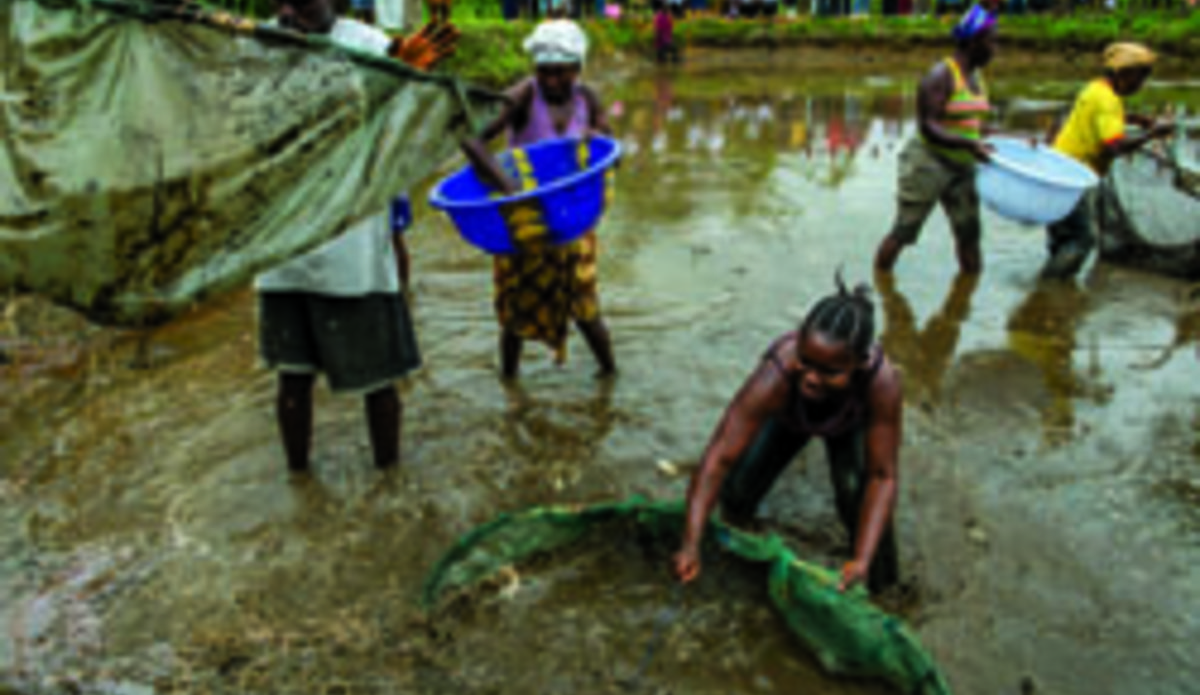After six months of anticipation, 50 women came together in the first week of August in Cheesemanburg, Montserrado County, to finally harvest their first ever fish. The fish pond, built six months ago and filled with 1,000 baby Tilapia, was part of an UNMIL Quick Impact Project (QIP) meant to empower the women and create a sustainable livelihood.
“I count this as important for this country in terms of food security, and also important for women because it is sustainable,” said James Mugo Muriithi, Gender Affairs Officer with UNMIL.
The weather cooperated with the women who, one by one, took their turns wading in the water and dragging their large nets along the water bed as they tried to find fish large enough for sale. Boys and men in the community lined up around the pond, some jumping in to help at times. The whole time, they were singing songs of inspiration and thanks.
“We’re here to harvest the fish that we grew,” said Jartu Baryous, one of the women in the collective. “This is the first time we ever had fish here. We hope it will continue for years and years. ”
Baryous explained that the 50 women are divided into five groups of ten, each sharing and reinvesting profits among them. Some of the fish will be eaten, while the rest will be sold fresh or dried for later sale.
Township Commissioner Thomas Cassell said this initiative is the first of its kind in the region.
“Since the cessation of hostilities in Liberia in 2003, the women of Cheesemanburg have never ever benefitted from any empowerment programme. We have lobbied, we have appealed, but to no avail. Finally, the women of Cheesemanburg were privileged to benefit from this fish preservation project. The name UNMIL will never be erased within the annals of this township. That name will always remain, and will leave an indelible imprint on our hearts and minds.”
County Superintendent Florence Brandy attended this first fish harvest to congratulate the women’s group.
“To all the great women of this programme, let me say thank you. Thank you for owning this project because we know the efforts of our partners will go in vain if our people do not put interest in the project,” said Brandy. “This is another form of keeping the peace that we have.”
The $25,000 QIP project in Cheesemanburg is aimed at providing a sustainable livelihood option for the women involved.
 UN
UN United Nations Peacekeeping
United Nations Peacekeeping





